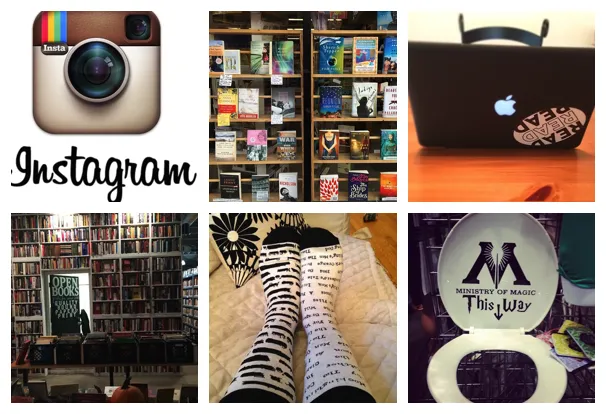
Our Reading Lives: Multiple Reading Identities?
A couple weeks ago, I began my Big Reading Project of 2012–a re-read of Toni Morrison’s full backlist in anticipation of the release of her new novel Home and our day-long celebration here at Book Riot on May 8th. The first time I ever read Morrison was seven years ago in a college seminar with a professor who built her career as a Morrison scholar. We read through all of Morrison’s novels in chronological order (Love was the last one then) with some literary theory and criticism mixed in, and it was just as intense and life-changing as you might expect.
Since then, I’ve re-read a few of the novels (Sula and Paradise–my favorite–many times), and I’ve noticed that, though I have now been a non-student reader for many more years than I was a student reader (my high school English classes were rigorous, but we all know that college is a whole other level), I can’t seem to shake my student reading mentality with Morrison. It’s my notes that are revealing this to me. I have always been an underliner and a maker of marginalia. Note-taking is an integral part of my reading life no matter what the material is, but the kinds of notes I make tend to vary with my reasons for reading a book. I mark different passages when I’m reading for sheer pleasure than I do when I’m preparing for a review, and I’ve been operating within that dichotomy long enough now to be comfortable with it and able to move between those reading identities without much friction. But this return to an academic reading style has me puzzled.
One of the things I most like about re-reads is being able to see my old notes and take inventory of how my response to the book changes over time. It’s an interesting way to monitor self-growth, and I am usually pleased by the discovery that with each reading, I am able to read more deeply than the last. With Morrison, though, it’s different. I know that her work is often difficult, and even though I can see the notes from my academic readings and use them to guide me, my generally high reading confidence goes right out the window. I wonder if I’m noticing the right things and if my notes are smart enough (as if someone else is going to read them or, gasp, grade me on them?). I’m hyper-conscious of what I mark and how I annotate these books. I’ve read and understood them before, and I got an A in that crazy-hard seminar, but each time I pick them them up, I am always, always afraid that I won’t be able to hack it.
I have some theories about why this is. Perhaps the fact that I first encountered Morrison in an academic setting has conditioned me to think of her work as of a sort that must be read with that level of analysis and care. Then again, she’s so unspeakably good–and better than just about everyone else–that I hope I would read her with great care regardless. Moving on! Maybe it’s that I feel the academic approach is my only option–I don’t feel at all qualified to review Morrison in the traditional sense, and I’m not sure that, because of all they contain, her books can ever be a “sheer pleasure” selection, so student mode is all that’s left. If I’m really honest, though, that’s a bullshit theory, too. I think the truth is that I like my academic reading identity because of the distance it allows me to have from the work. I know that Toni Morrison is capable of shredding my psyche into tiny little pieces, and when I choose to read her as a student, I give myself permission to prioritize thinking about the books over feeling about them.
There’s something to be said for self-protection, but really, we’re *supposed* to feel things when we read. I usually do, and with a lot of conscious effort, I think I’m getting there with Morrison. During my re-read of The Bluest Eye, I didn’t finish a single sitting without a knot in my stomach, and I spent a few days feeling totally emotionally wrung out. I’m well into Sula now, and it’s going the same way. I’ve read these books before; I know what’s going to happen; but I’m responding to them in a new, more complex way, and I hope that will continue. I’m still taking notes and looking at symbolism and seeing the bones of these incredible stories, too, (you can take the girl out of the classroom…) so now I’m wondering: Is this the development of a whole new mode of reading for me, or is this what it looks like when you successfully integrate your multiple reading personalities?
I know I’m not the only one who juggles multiple reading identities–in fact, I’d venture that the majority of readers experience this at some point–so I’m curious: how do you balance your various modes of reading?
____________________
We run a pretty sweet little bookish Instagram account, if we do say so ourselves (and we do). Come check it out.











